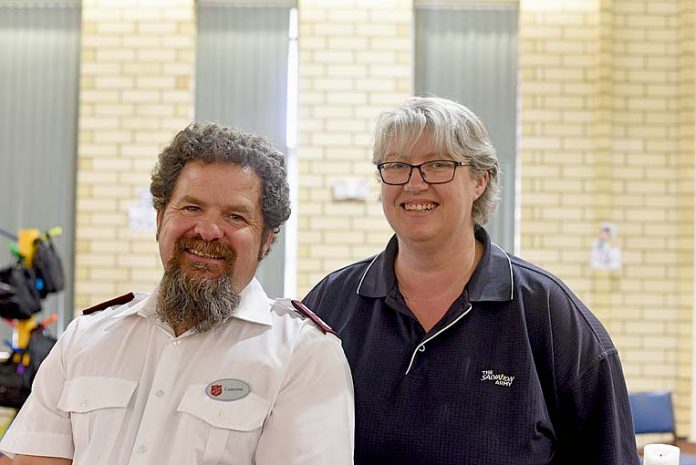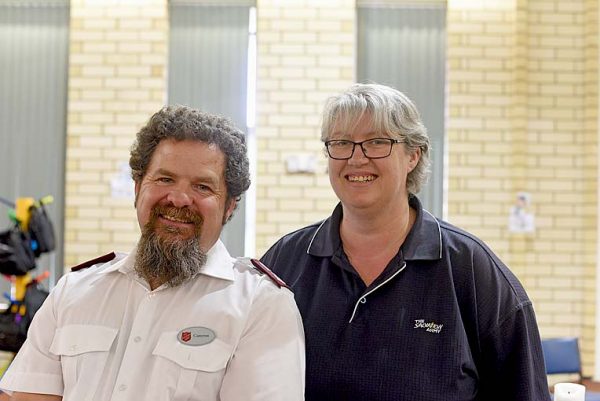

THE Mount Gambier Salvation Army has commended the South Australian Council of Social Service’s (SACOSS) latest proposal to the State Government to help families doing it tough across the community.
Releasing the telecommunications, energy and water policy in the lead-up to the state election, the welfare group is asking all parties to commit to nine policies which will help those struggling most with cost of living pressures.
These policies include increasing the availability of free public wi-fi in areas of digital disadvantage, making landlords responsible for the water supply charges on their rental properties and changing the energy concession from a flat rate to one based on the size of the bill.
“It all sounds like the same kind of position we have been advocating for some time now,” Mount Gambier-based corps officer Trudy Horsburgh said.
“The Salvation Army smiles about anything that looks like it is going to be encouraging for those at a disadvantage and this looks like it would take some of that financial pressure off them.”
Speaking of the many financial challenges people throughout the region are facing, Ms Horsburgh said electricity and water costs do take a toll on families.
“The water cost is quite significant for some people, so if water supply charges did not need to be paid by the tenant it would definitely help those who are finding themselves a little bit more disadvantaged,” she said.
“As for the electricity, South Australia has the worst prices in the country so if concession was done on a tier base that would make a fairly significant difference.”
Highlighting the need for free wi-fi in areas across the Limestone Coast, Mr Horsburgh said the challenges involved in accessing government services were evident.
“While there is free wi-fi at the library and in some cafes around Mount Gambier, many people do not have access to a car and cannot travel into the city centre to use the internet,” he said.
“Centrelink is the main form of income for some, while others are on the hunt for a job and without easy access to internet it would be extremely difficult to report to Centrelink or search for a job.
“There are a lot of barriers for people in this kind of situation that we often do not realise.”
Communities and Social Inclusion Minister Zoe Bettinson welcomed the report tand said the State Government was considering the measures as part of its plan to relieve cost of living pressures on families in need.
“The State Government is constantly looking at new ways to reduce living costs for our most vulnerable households,” she said.
“I welcome the recent SACOSS report into utility costs for low income South Australians and look forward to working with them to drive down energy costs for struggling families.”
SACOSS chief executive officer Ross Womersley said he hoped all parties going into the 2018 state election would have policies to address the multiple cost of living pressures.
“The recent announcement by government of a discount deal for concession card holders is a very welcome start, but it does not help everyone who is struggling and it does not fill the chasm created by burgeoning energy prices,” he said.
“A comprehensive approach is needed and we think our policy proposals are good elevators because they focus on the most vulnerable energy, water and telecommunication consumers, including the working poor.
“All South Australian households are feeling cost of living pressure, but it hits low income households hardest because they have less room to move in their household budget and essentials like telecommunications, energy and water account for a higher proportion of their household income.”
In the last week of the election campaign, SACOSS will publish a report card rating the major parties against all the issues and policies the community sector will rais throughout the campaign.
“It’s important that groups such a SACOSS can keep pushing the government and saying if you are promising it, let’s make sure it happens,” Ms Horsburgh said.







